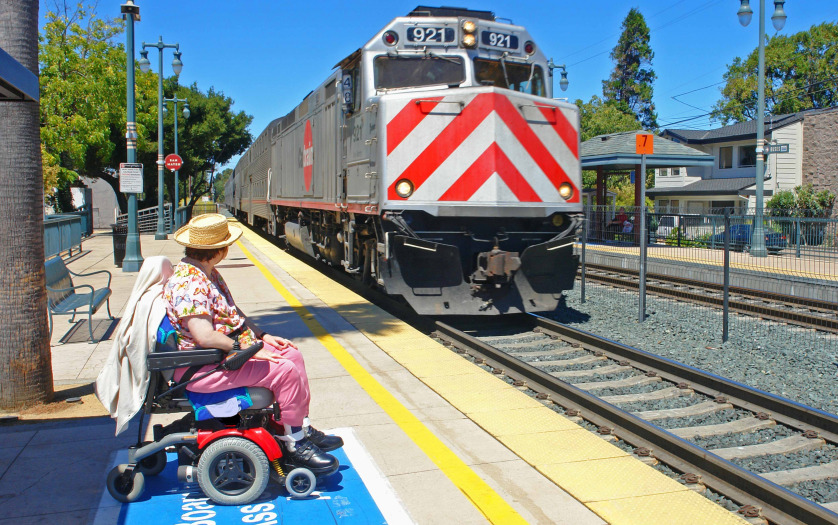
Thirty-two years after the passage of the Americans with Disabilities Act, U.S. rail systems will get a significant boost in federal funds to improve accessibility for all riders.
The Bipartisan Infrastructure Law, created and will provide $1.75 billion to make it easier for people to get on board at the nation’s oldest rail public transportation systems, including $343 million in a notice of funding availability now. The funding will help agencies retrofit subway stations so people who need an elevator or ramp – including people who use wheelchairs or have limited mobility – can still reliably access the rail systems serving their communities.
The funding will help agencies retrofit subway stations so people who need an elevator or ramp – including people who use wheelchairs or have limited mobility – can still reliably access the rail systems serving their communities.
“While our country has made enormous progress in the three decades since passing the Americans with Disabilities Act, too many people with disabilities still don’t have access to reliable public transportation,” said U.S. Transportation Secretary Pete Buttigieg. “Using funds from President Biden’s Bipartisan Infrastructure Law, we are modernizing some of our oldest public rail stations and ensuring that more Americans count on our transit systems to get where they need to go.”
The All Stations Accessibility Program (ASAP) is a new discretionary grant program created by the Bipartisan Infrastructure Law that will increase access to our transportation system and advance the Biden-Harris Administration’s priorities of promoting equity, addressing the workforce shortage, and boosting economic strength. Funding through ASAP ensures that those relying on rail systems can get to work and school, be less dependent on vehicles, save money, and reduce greenhouse gas emissions.
Inaccessibility is a significant hurdle for riders using rail systems built before 1990, known as legacy systems. Over 900 transit legacy stations are not fully accessible today. ASAP will provide support for transit agencies to repair, improve, modify, retrofit, or relocate infrastructure of stations or facilities for passenger use. Planning activities by transit agencies seeking to improve accessibility also qualify for ASAP funds.
Given that many inaccessible rail stations are concentrated in dense urban areas, millions of transit riders across the country are impacted by the lack of infrastructure that supports assisted devices, such as wheelchairs or crutches. Additionally, people experiencing a temporary disability, caregivers, and parents with strollers are adversely impacted by the lack of these accommodations.
“Equity depends on accessibility. FTA is committed to ensuring transit systems nationwide are available to people with disabilities and that they are able to use transit systems with the same ease and reliability as any other user,” said Federal Transit Administration (FTA) Administrator Nuria Fernandez.








